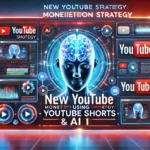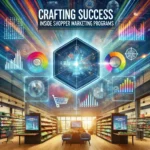In the rapidly evolving world of marketing, the role of the Marketing Director has transformed significantly. As the nexus between creativity, analytics, and technology, modern marketing leaders are tasked with navigating an increasingly complex landscape. This article delves into the multifaceted responsibilities of the Marketing Director, highlighting the skills and strategies necessary to craft successful campaigns in the 21st century.
Understanding the Role of a Marketing Director
The role of a Marketing Director is a dynamic blend of strategic oversight, creative leadership, and operational management. These individuals are responsible for shaping the brand’s narrative, driving customer engagement, and ultimately contributing to the organization’s bottom line. They must juggle various tasks, from overseeing campaign development to liaising with other departments, all while keeping a keen eye on market trends. The modern Marketing Director is not just a manager but a visionary leader who guides the brand’s journey through the ever-changing market dynamics.
Key Skills for Today’s Marketing Visionaries
Today’s marketing visionaries must possess a diverse skill set that includes strategic planning, digital literacy, and interpersonal communication. They must be adept at understanding consumer behavior, skilled in harnessing the power of big data, and capable of cultivating a culture of innovation within their teams. In addition to these technical skills, emotional intelligence is crucial for motivating their teams and fostering productive collaborations. A Marketing Director with these skills can effectively steer their organization towards success in a competitive landscape.
Navigating the Digital Marketing Landscape
The digital marketing landscape is a vast and intricate web that Marketing Directors must skillfully navigate. From social media platforms to search engine algorithms, understanding where and how to reach the target audience is paramount. This requires staying abreast of the latest digital tools and platforms, as well as understanding how to leverage them to engage customers effectively. A successful Marketing Director knows that digital marketing is not just about visibility but about creating meaningful connections with consumers.
Balancing Creativity with Data-Driven Insights
Creativity and data might seem like opposing forces, but for a Marketing Director, balancing the two is essential. Creativity fuels unique and engaging campaigns, while data provides the insights necessary to refine and target those campaigns effectively. By integrating data analytics into the creative process, Marketing Directors can make informed decisions that enhance their campaigns’ impact and efficiency. This balance is the cornerstone of modern marketing strategies, ensuring that creativity is both inspired and strategic.
Building a Cohesive and Agile Marketing Team
A successful Marketing Director knows that their strength lies in their team. Building a cohesive and agile marketing team is critical for responding to the fast-paced nature of the industry. This involves recruiting diverse talent, fostering an inclusive environment, and nurturing continuous learning and adaptability. By encouraging collaboration and open communication, Marketing Directors can create a team capable of tackling challenges and seizing opportunities with agility and innovation.
Leveraging Technology for Marketing Success
Technology is a powerful ally for the modern Marketing Director. From artificial intelligence to customer relationship management systems, leveraging technology allows marketing teams to automate routine tasks, personalize customer interactions, and analyze vast amounts of data. Embracing technological advancements enables Marketing Directors to streamline operations and focus on strategic initiatives that drive growth and innovation. Staying tech-savvy is not optional; it’s an imperative in crafting marketing success.
Adapting to Changing Consumer Preferences
Consumer preferences are as dynamic as the marketing landscape itself. A Marketing Director must stay attuned to shifts in consumer behavior and preferences, adjusting strategies accordingly. This adaptability involves not only understanding demographic changes but also recognizing cultural trends and societal shifts that influence consumer choices. By maintaining a consumer-centric approach, Marketing Directors can ensure their brands remain relevant and appealing in an ever-changing market.
Crafting Effective Multi-Channel Strategies
In today’s interconnected world, crafting effective multi-channel strategies is vital for reaching a diverse audience. A Marketing Director must orchestrate campaigns that seamlessly integrate various channels, from traditional media to digital platforms. This involves understanding each channel’s unique strengths and how they complement one another to create a unified brand message. Successful multi-channel strategies not only amplify brand visibility but also foster deeper engagement and loyalty among consumers.
Measuring Success in Modern Marketing Campaigns
Measuring success in modern marketing campaigns goes beyond traditional metrics like sales figures or market share. Marketing Directors must employ a range of key performance indicators (KPIs) that reflect consumer engagement, brand perception, and the effectiveness of various channels. By embracing advanced analytics and real-time data tracking, they can gain valuable insights into campaign performance and make informed adjustments. This data-driven approach ensures continuous improvement and long-term success.
Future Trends Shaping the Marketing Director’s Role
As we look to the future, several trends are poised to shape the role of the Marketing Director. The rise of artificial intelligence, increasing emphasis on sustainability, and the growing importance of personalization are just a few factors influencing marketing strategies. Additionally, the integration of virtual and augmented reality into consumer experiences is expanding the boundaries of engagement. Marketing Directors must be forward-thinking, anticipating these trends and preparing their teams to adapt and innovate.
In conclusion, the modern Marketing Director is a master of balance, managing the delicate interplay between creativity, data, technology, and human insight. By embracing change and fostering a culture of innovation, these leaders craft pathways to success in an increasingly complex marketing world. As consumer expectations evolve and new technologies emerge, the role of the Marketing Director will continue to adapt, shaping the future of marketing one campaign at a time.








